Search
Showing 10 of 1867 results for how to register international groups
-
NZ-China Tripartite Partnership Funds awarded
Education New Zealand Manapou ki te Ao congratulates Dr Stephen Croucher and Associate Professor Mingsheng Li from Massey University; Dr Shengnan Wang from the University of Auckland; and Professor Nicholas Rowe from the University of Auckland.
The awardees were selected from a number of proposals by an assessment panel which included representatives from the Ministry of Business, Immigration and Employment; Ministry of Education; Ministry of Foreign Affairs and Trade; and ENZ.
The New Zealand-China Tripartite Partnership Fund is an ENZ-sponsored initiative to encourage the development of strategic research relationships between New Zealand and China, as part of our wider goals to develop strong global connections and highlight the quality of New Zealand education and research.
The fund was established in 2005 when the New Zealand and China Ministries of Education agreed to formally support and promote tripartite relationships between Kiwi and Chinese institutions, in which a New Zealand university became the ‘third brother’ to an existing ‘two brothers’ agreement.
Massey University – Dr Stephen Croucher
“Protection of the Endangered Languages and Cultural Diversity in West China: A Case study of Miao Minority Language in Guizhou Province, China”
Massey University will continue its established Tripartite relationship in the humanities and social sciences with Beijing Jiatong University and Guizhou University. The relationship is supported with a Memorandum of Understanding signed in February 2022 by the three institutions for the next five-year period.
The 2022-23 funding will support research into how to maintain, protect, and revitalize the Miao language, a minority language categorized as severely endangered. Research findings will be shared through publications, conferences and reports. Funding will support transcriptions, data entry, conference costs, and travel to rural areas to conduct research.
Professor Stephen Croucher, Massey University
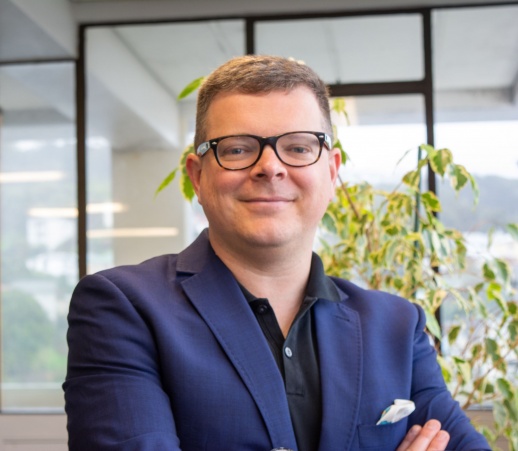
Associate Professor Mingsheng Li, Massey University
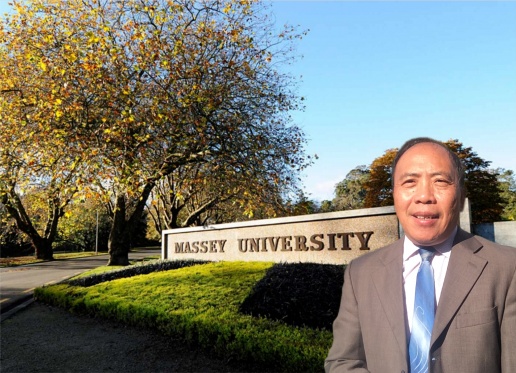
Associate Professor Haiyan ZHANG, Beijing Jiaotong University
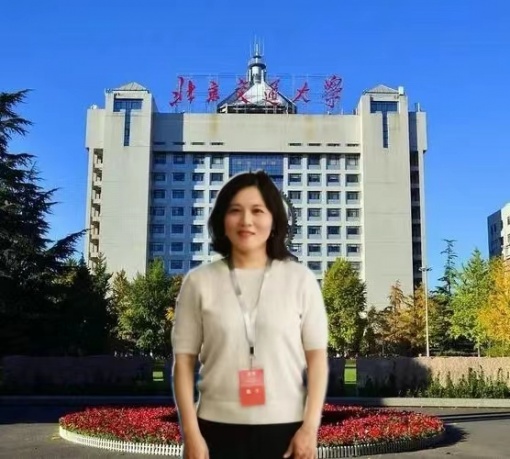
Professor Lin SHEN, Guizhou University
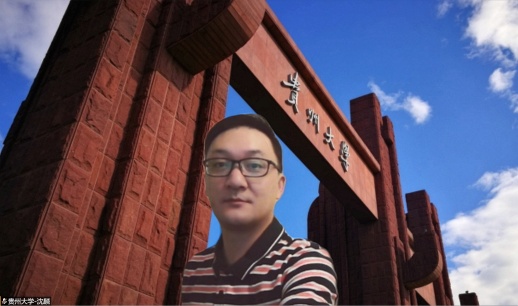
University of Auckland – Research Fellow Dr Shengnan Wang
“The Project Hui: An innovative virtual exchange programme for preservice teachers in New Zealand and China”
This new Tripartite Partnership in the social sciences is with Beijing Normal University and Qinghai Normal University. The University of Auckland received funding to conduct research into international exchange experiences for preservice teachers. Professor Wang proposes the Project Hui, a six-week digital international exchange programme aimed at bringing together the preservice teachers and education experts from each of the three partner universities.
The Tripartite Fund will enable all three partners to design the virtual exchange programme and implement a pilot trial to test efficacy. The proposal outlines the potential for growth and expansion of Hui as a virtual alternative exchange programme.
Dr Shengnan Wang, University of Auckland
Professor Guoyuan Sang, Beijing Normal University

Associate Professor Weiyu Song, Qinghai Normal University

University of Auckland – Professor Nicholas Rowe
“Teacher training for creativity and collaboration”
This new Tripartite relationship in the arts and social sciences is with Chengdu University and Beijing Normal University. The research project is built around an online learning tool that can provide effective professional development for teachers of creativity. The tool is currently under development as a microcredential at the University of Auckland and through the Tripartite Partnership Funding, the research and development of the digital resource will be expanded to explore the professional development needs of tertiary educators in China.
Image below: Professor Nicholas Rowe (University of Auckland) front row, centre and Professor Tuomeciren Heyang (Chengdu University) front row, to the right of Prof Rowe with staff of the Faculty of Creative Arts at Chengdu University
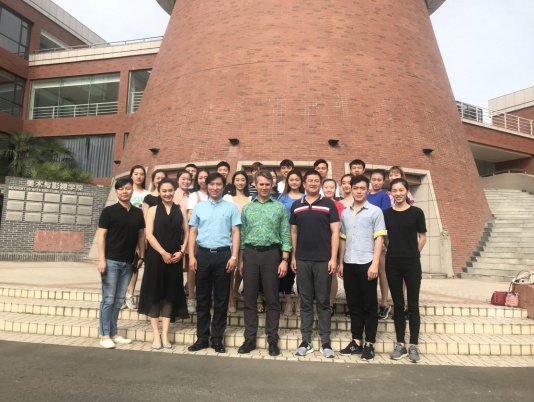
Image below: From Left to Right Professor Jie Wang (Beijing Normal University) Professor Lv Yisheng (Beijing Dance Academy) Professor Nicholas Rowe (University of Auckland) and Haiwen Wu, (Chinese Ethnic and Folk Dance Test Centre), in Beijing.
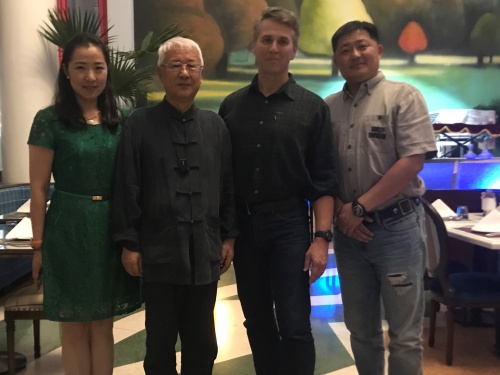
-
Cohort 4 students arriving
Andy Walker, Business Development Manager at Education New Zealand Manapou ki te Ao, says the nomination process for Cohort 4 has now closed.
“We recently made a final reallocation of unused places to providers from across the sector, who had demonstrated they have travel-ready students.
“Students whose nominations have been confirmed are encouraged to submit their Request for Travel application to Immigration New Zealand as soon as possible. Immigration New Zealand have advised that as at 21 June, 4,709 RFTs had been approved and 1,862 student visa applications granted.
“We’ve worked very closely with the Ministry of Education and collaborated with Immigration New Zealand throughout this process. We have particularly valued the partnership with education providers across the sector to successfully implement the cohort,” Andy says.
“I’m very pleased that we’ve been able to bring back these international students sooner than would otherwise have been possible. International students bring a wealth of social, cultural and economic benefits, and we’re all looking forward to welcoming them back to New Zealand.”
-
Strong NZ presence at NAFSA 2022
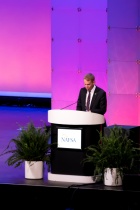 Education Minister Chris Hipkins spoke at the opening plenary event, which was co-sponsored by ENZ and the University of Colorado Denver, and attended by around 2,000 in-person guests including education professionals, government representatives, technology vendors, immigration agents, and specialist media from around the world. A further 2,000 people watched through NAFSA 2022 online.
Education Minister Chris Hipkins spoke at the opening plenary event, which was co-sponsored by ENZ and the University of Colorado Denver, and attended by around 2,000 in-person guests including education professionals, government representatives, technology vendors, immigration agents, and specialist media from around the world. A further 2,000 people watched through NAFSA 2022 online. Alongside the NAFSA programme, Te Pūkenga launched their international education strategy,and ENZ launched the sector’s new global marketing campaign, I AM NEW.
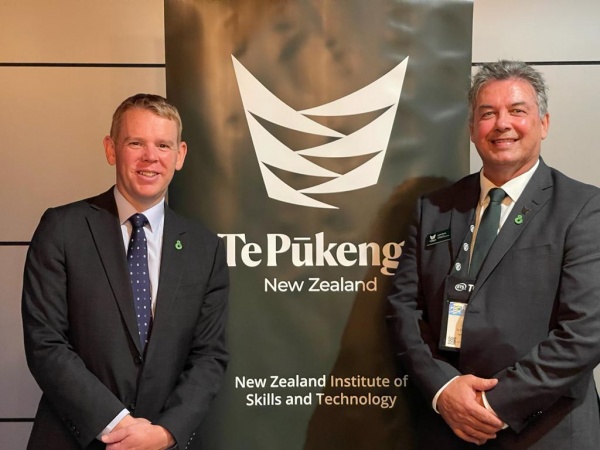
Minister Hipkins with Dr Leon Fourie, Te Pūkenga International Chief Executive
New Zealand’s stand at the expo featured three of the stunning kākahu (garments) at the heart of the marketing campaign. We were delighted that Kiri Nathan, who was the lead designer for the kākahu, was also able to attend NAFSA and spoke at the Thursday plenary event, sponsored by ENZ.
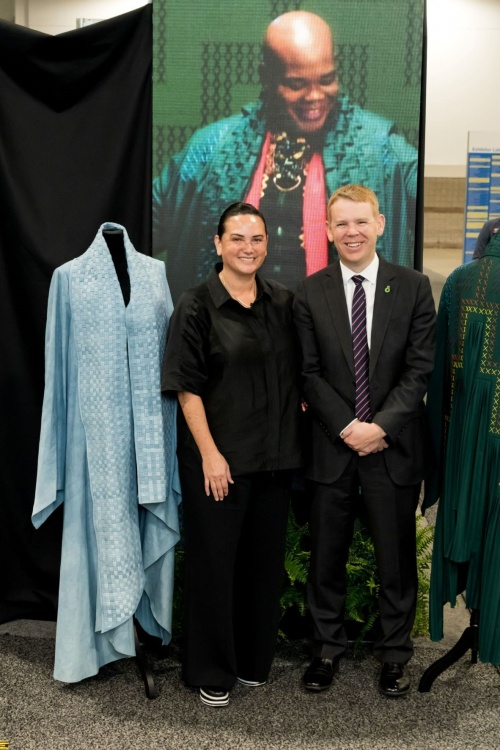
Designer Kiri Nathan with Minister Hipkins
Our marketing campaign is now well underway, with paid advertising in key partner countries supported by media releases, direct mail, social media, online video, programmatic display and other activities. It is driving a significant increase in engagement with our Study with New Zealand website, including many new users. You can view the campaign video and related images on BrandLab.
To date the campaign has reached 48 million people (this is a duplicate total across channels) and has driven 17,000 active visits to the I AM NEW campaign landing page. The Study with New Zealand website has seen 2,164 people sign up since the start of the campaign, with 754 referrals and 1,038 enquiries also registered to various institutions.
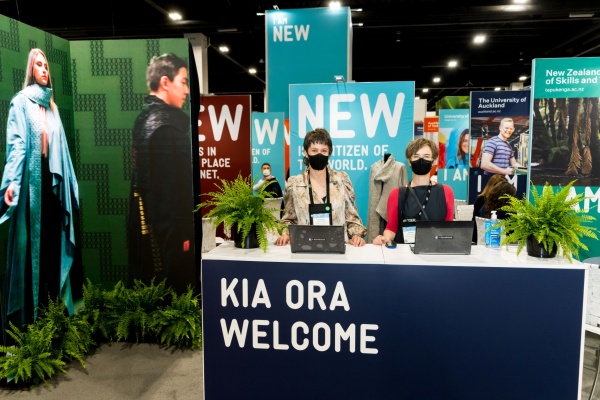
Bronwyn Shanks and Emma Wilkins from ENZ on the welcome desk
Next year will be NAFSA’s 75th year, and the conference will be held from 30 May to 2 June 2023 in Washington, DC.
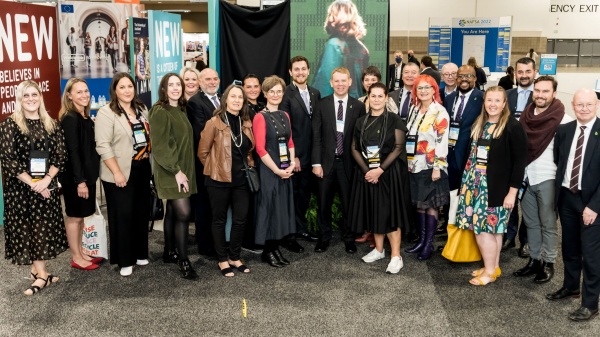
New Zealand's successful presence at NAFSA was supported by many people.
-
ENZ’s new partnership with the Manaaki New Zealand Scholarships Programme
The Manaaki scholarships represent the government’s single largest investment in international scholarships and have been awarded for more than 70 years.
The scholarships are a key pillar of Aotearoa New Zealand’s International Development Co-operation, offering more than 1,100 scholarships annually to students from 112 eligible countries to study in Aotearoa New Zealand, in the Pacific, or online.
“This partnership plays to the strengths of both MFAT and ENZ,” says Andrew Needs, MFAT Deputy Secretary – Pacific and Development Group.
“It will help us ensure that not only are we demonstrating manaaki to our scholars, but also offering scholarships that address the skills and knowledge requirements of each of our partner countries.”
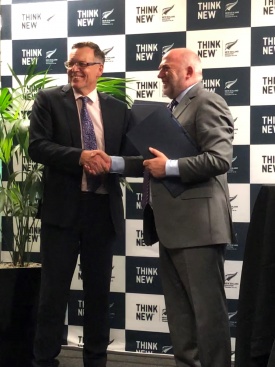
ENZ will participate in joint governance of the programme and provide data and insights to inform investment decisions, as well as operational management, drawing on its expertise in supporting a world-class scholar experience. The partnership offers opportunities to develop closer connections between scholarship partners and tertiary education providers and encourage innovation in product development.
ENZ already manages the Prime Minister’s Scholarships for Asia and Latin America as well as scholarships on behalf of the Ministries of Business, Innovation and Employment, and Primary Industries.
“This is an excellent example of ‘NZ Inc.’ cooperation in action,” said Grant McPherson, ENZ’s Chief Executive.
Two recent Manaaki Scholars are Aminat Razaq from Nigeria, who has completed her New Zealand studies on sustainable energy – you can read about her experiences here; and Jason Nath from Fiji who completed a Postgraduate Clinical Doctoral Degree in Paediatric Dentistry in New Zealand – you can read about his experiences here.
-
ENZ hosts its first famil since 2019
Eleven public universities were represented in the Malaysian delegation of senior executives from the Multimedia Technology Enhancement Operations Sdn Bhd (METEOR). METEOR is a consortium of universities that aims to provide advanced solutions through technology. This was an exploratory visit, to enable delegates to discuss a range of opportunities and possible partnerships with New Zealand universities and Te Pūkenga.
The visit was exciting on many fronts as our institutions demonstrated their expertise and explored mutually beneficial relationships, regions showcased their attractions, and the famil delegates from Malaysia experienced many aspects of New Zealand.
The eight-day visit included Wellington, Canterbury and the Waikato. While the start of the week coincided with a cold southerly storm, this was mitigated by warm hospitality and the promise of sun later in the week.
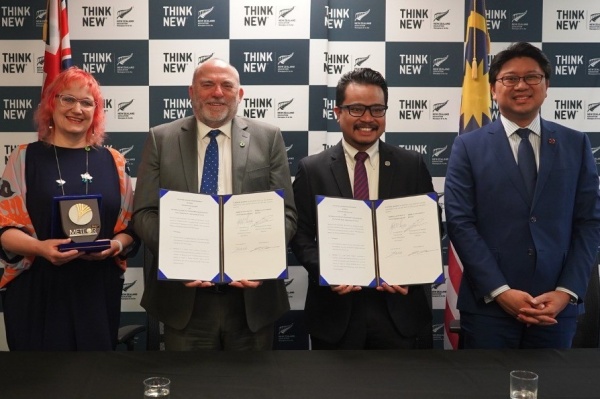
L to r: Lisa Futschek, GM International at ENZ; ENZ’s Chief Executive Grant McPherson; Mr Muhammad Afiq Bin Redzuan, Group Chief Executive Officer at METEOR; and YB Senator Tuan Jaziri Alkaf Abdillah Suffian, after signing an Education Cooperation Agreement.
The delegation was fortunate to meet with Minister of Education Chris Hipkins during their visit. While in Wellington they also signed an Education Cooperation Agreement with ENZ that provides a framework for our relationship going forward. They also met up with Malaysian students at various institutions and heard about their personal experiences here.
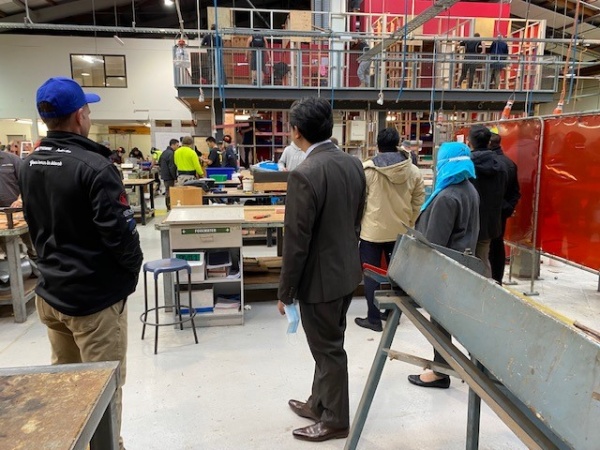
The delegation saw trades in action at WELTEC’s trades campus where they observed building apprentices on a block course.
Famils are important for ENZ as well as for New Zealand institutions, as they establish relationships and strengthen people-to-people links. They are also a key way to showcase some of the best education New Zealand has to offer across different regions.
ENZ looks forward to hosting more famils in the coming months, in partnership with institutions and regions throughout New Zealand.
You can read more about the METEOR famil on the Ara website here.
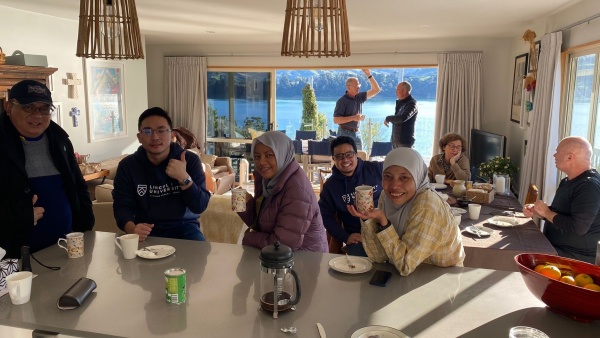
A Kiwi welcome was on offer at a private bach in Duvauchelle near Akaroa.
-
Education ties with China
People’s Republic of China Education Minister Huai Jinpeng and New Zealand’s Education Minister Chris Hipkins met virtually on 23 August 2022. This was their first meeting since Minister Huai took up his appointment in August last year.
During the meeting, ministers and officials signed the renewal of the Education Cooperation Arrangement between the two Ministries of Education. Co-operation in higher education, vocational education as well as early childhood education were among the topics discussed. Both ministers expressed the importance they place upon our mutually beneficial education relationship and our people-to-people ties.
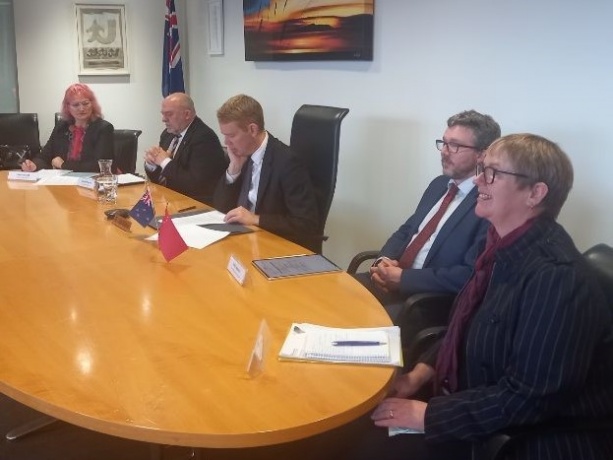
Left to right: Lisa Futschek, GM International at ENZ, Grant McPherson, Chief Executive at ENZ, Education Minister Chris Hipkins, Andy Jackson, Deputy Secretary Policy at Ministry of Education, Shelley Robertson, GM International Education Policy at Ministry of Education, attending the meeting in Wellington.
This year New Zealand and China are celebrating 50 years of diplomatic relations, and people – Tangata – is one of the key themes for the celebrations.
ENZ’s Director for Greater China, Miranda Herbert, say that the Covid-19 restrictions currently in place in China continue to affect people’s ability to move around or meet in person.
“We are constantly looking for ways to continue engaging with key people in China,” she said.
“Holding this meeting virtually was a way for us to maintain and build our government-to-government relationships, even though there has been a pause in mobility.
“The discussion between ministers highlighted the strong foundation of the education relationship and the continued collaboration across initiatives such as the Tripartite Partnership Programme, the Early Childhood Education Symposium and forums on vocational education and training.
Looking ahead there will be further events and initiatives to continue to build people-to-people links in the education sector.
-
Building connnections with career counsellors in India
Seven of New Zealand’s universities took part in the conference, which attracted more than 1,400 delegates, representing 56 nationalities. The university delegates engaged in panel discussions on a range of topics, including ethical counselling and preparing for education abroad, which were well attended. Education New Zealand Manapou ki te Ao (ENZ) led the New Zealand delegation as a gold sponsor of the event.
Launched in 2016, IC3 is the largest platform for connecting high school career counsellors in India with tertiary education institutions. The conference brings together school leaders, teachers, counsellors, universities, education organisations, government bodies, industry leaders and others with an interest in sustainable and inclusive counselling, focused on student success.
Jugnu Roy, ENZ’s Director of Engagement based in India, says participation in the annual conference is valuable for ENZ as well as for the universities involved.
“High school careers and college counsellors are key influencers for students in India when it comes to making choices about tertiary study and future careers. This event has been a great help with building our connections with schools across southern India, so we can develop a pipeline of international students interested in undergraduate study in New Zealand.
“The timing of the conference worked well as an opportunity for branding, visibility, and reconnecting with Indian schools soon after the opening of New Zealand’s borders. This was the first time we had been able to attend in person for two years.
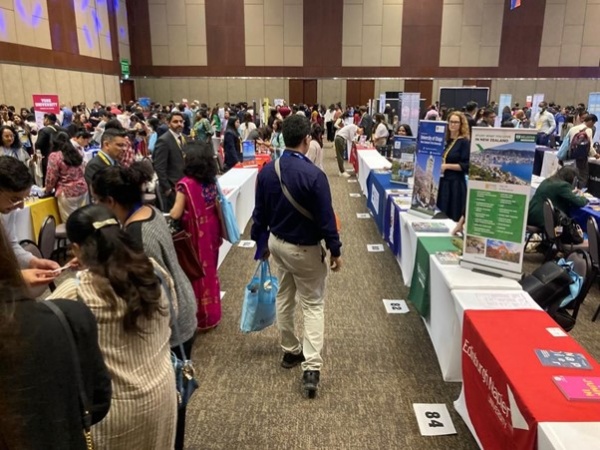
New Zealand universities interacting with schools at the networking session.
“Our participation in the event has already led to increased interest in a New Zealand education among high school counsellors, who are keen to invite New Zealand institutions to their schools for university fairs and to meet with students.
“In a country like India, where many countries are trying hard to attract international students, New Zealand’s presence sends a strong signal that we are committed and here to stay.”
The 2022 IC3 Institute Student Quest Survey Report was published during the conference. More than 10,000 students responded, naming the top three factors affecting their choice of university: programme details, financial aid/scholarship information, and potential job opportunities.
For more information about the conference, see the IC3 Conference website here.
For more information about the recent student survey, see the IC3 Institute website here
-
Showcasing New Zealand education at EAIE 2022
Held from 13-16 September in Barcelona, Spain, the 32nd Annual EAIE Conference and Exhibition attracted more than 200 exhibitors and 6,300 participants for a packed programme of sessions, networking events and plenaries. This was an ideal platform for New Zealand institutions and the ENZ team to meet with key stakeholders, including government and university partners, education agents, and study abroad and pathway providers.
New Zealand’s branded pavilion featured the kākahu (garment) created for German student Malina Grube from the I AM NEW campaign, and attracted attention from European and global education professionals.
Alongside their busy schedule of meetings and appointments, the New Zealand representatives also attended a networking event organised by ENZ, which brought together more than 100 key education partners.
Speaking at the event, ENZ Chief Executive Grant McPherson said the value of New Zealand's education relationships in Europe lies in student mobility, and in the quality of the academic relationships between New Zealand and European partners, the strong research and innovation links between us, and the ties these build beyond the education sector.
“I am proud of the many educational partnerships and connections New Zealand’s institutions have with European counterparts and globally,” he said.
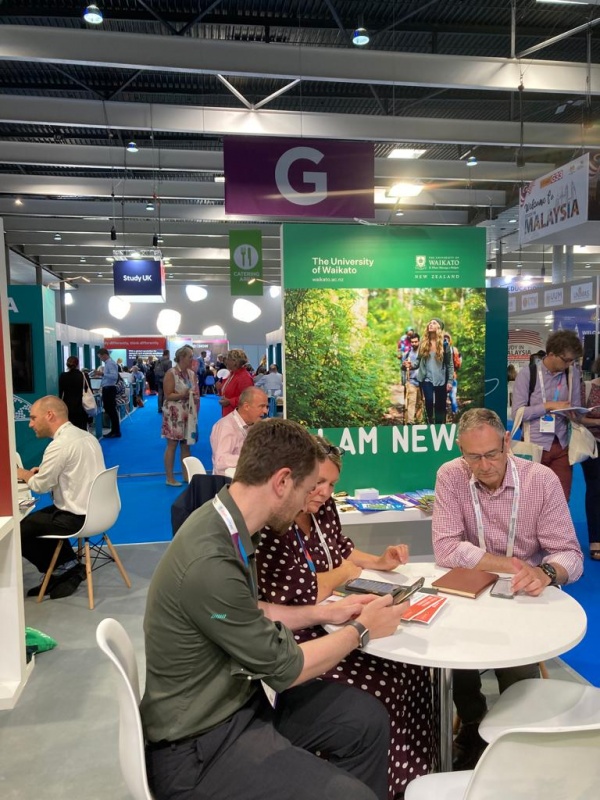
LtoR: Richard Witts, Regional Manager – Africa, Middle East & Europe, Sharon Calvert, Director, International, and Alister Jones, Senior Deputy Vice-Chancellor, the University of Waikato
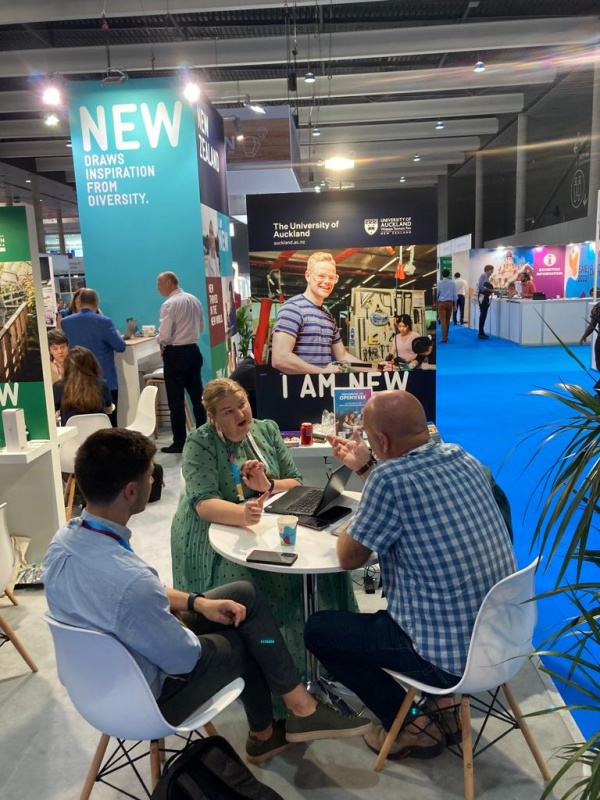
Ainslie Moore, Interim Director International, the University of Auckland, meets with key contacts
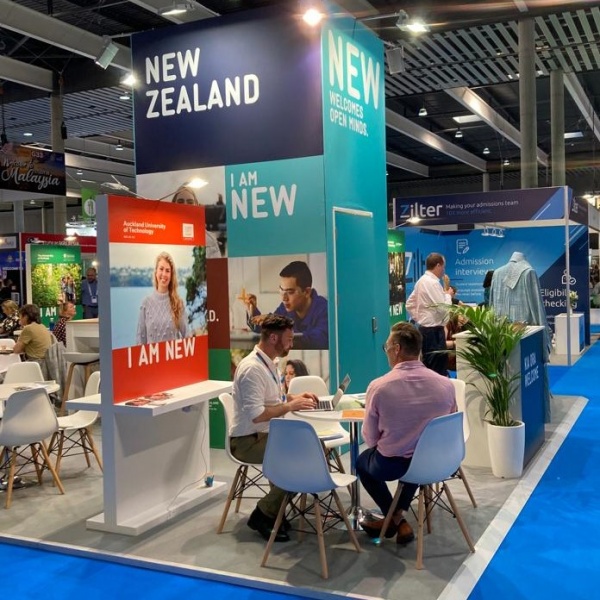
The New Zealand pavilion, with Brett Armstrong, Study Abroad Manager, Auckland University of Technology, in the foreground and the kākahu on display beside the welcome desk.
-
Study abroad promo in US
Study Abroad Month, led by our Washington DC-based team, targeted the study advisors at United States universities, who support students with their study abroad plans. A series of videos were published each week and sent to key contacts, including a closing video from Education Minister Chris Hipkins.
Lewis Gibson, Field Director North America at Education New Zealand Manapou ki te Ao, says study abroad students are our main source of international students from the US.
“Pre-Covid-19, around 350,000 tertiary students each year spent a semester overseas as part of their degree. We’re looking to increase our share of this group.
“In normal times, US institutions and study abroad advisors rely on the voices of New Zealand alumni, who can share their experiences with other people on campus and build interest in a New Zealand study experience,” he says.
“We needed to do something different this year, because our borders had been closed so there weren’t the alumni students available on campus. We also needed a good way to remind study advisors about New Zealand’s unique education offering.”
Lewis says feedback from institutions in the US has been very positive, and they are looking forward to seeing students travel again to New Zealand. Some of the comments received included the following:
- “Thank you so much for letting us know about this exciting project! I just shared the New Zealand Study Abroad Month YouTube channel with our spring 2023 applicants... We are thrilled to nominate over 15 students to our outstanding partner universities in New Zealand ...for the first time in over two years!”
- “Thank you for sharing this information. I watched Fiona’s video for VUW and I am sharing it with several students who are deciding which NZ institution to attend for Term 1 via TEAN. I’ll be certain to watch future videos and do the same with those.”
- “We are so grateful of the opportunities you provide our students, and our tight partnership together.”
“In case anyone is wondering, we initially intended to run the promotion for four weeks, hence the name, ‘Study Abroad Month’. But with the participation of so many universities, and the inclusion of additional videos reflecting the voices of students, it made more sense to expand the promotion to six weeks.”
Before our borders closed, the US was our sixth largest source of international students, with most students seeking to enrol in university-level study here. Study Abroad Month aimed to attract students to New Zealand from the US spring semester 2023 onwards.
- “Thank you so much for letting us know about this exciting project! I just shared the New Zealand Study Abroad Month YouTube channel with our spring 2023 applicants... We are thrilled to nominate over 15 students to our outstanding partner universities in New Zealand ...for the first time in over two years!”
-
High level of interest in vocational education forum
Organised by Skills Consulting Group and Education New Zealand Manapou ki te Ao (ENZ), together with Te Pūkenga, the forum provided an opportunity to share knowledge and insights on best practice in technical and vocational education and training, in an accessible format.
A key theme was the importance of close relationships with industry, particularly in terms of apprenticeships. For some participants, a longstanding perception that higher education is more important than vocational education remains a challenge. Student panel participants also talked about the confidence and support that their parents provided when they were making decisions about whether to enter vocational education programmes, and having no regrets about the career paths followed.
Topics covered included solving skills shortages, apprenticeships, youth employment, lifelong learning, digital transformation, sustainability, and promoting diversity. Senior government officials, major companies, international organisations, sector leaders and students from around the world spoke at the forum, which was opened with a speech from Education Minister Chris Hipkins.
Text-based chat and discussion tools in the virtual environment were multilingual, providing instant translation to enable communication and networking across 28 different languages.
The China – New Zealand Higher Vocational Education Summit was also part of the APAC TVET Forum and featured a dedicated virtual room for Chinese presenters and audience members. The Summit provided a platform to:
- discuss New Zealand’s recent experience of vocational education reform
- further develop cooperation in vocational education between New Zealand and China, building on the existing joint programmes between Te Pūkenga subsidiaries and vocational institutions in China.
Keynote speakers from China included Chen Dali, Deputy Director, General Department of International Cooperation and Exchanges from the China Ministry of Education, and presenters from industry including Wang Jinsheng from Qingdao Technical College.
ENZ Business Development Manager Richard Kyle says APAC TVET is the only forum of its type in the region.
“It was particularly encouraging to see double the number of registrations this year, building on the success of the first forum in 2021. There’s clearly a high level of interest in this event, and it’s a great opportunity to showcase New Zealand’s strengths in vocational and technical education.”
Positive comments were received from many attendees.
“Brilliant tech. Excellent management…and good content.”
“Amazing numbers... Very informative sessions and I’ve got people more interested in our upcoming activities.”
“It was well organised from the invitation to the closure of the forum – well done job!”

